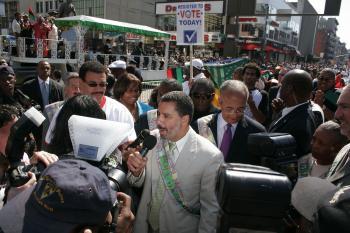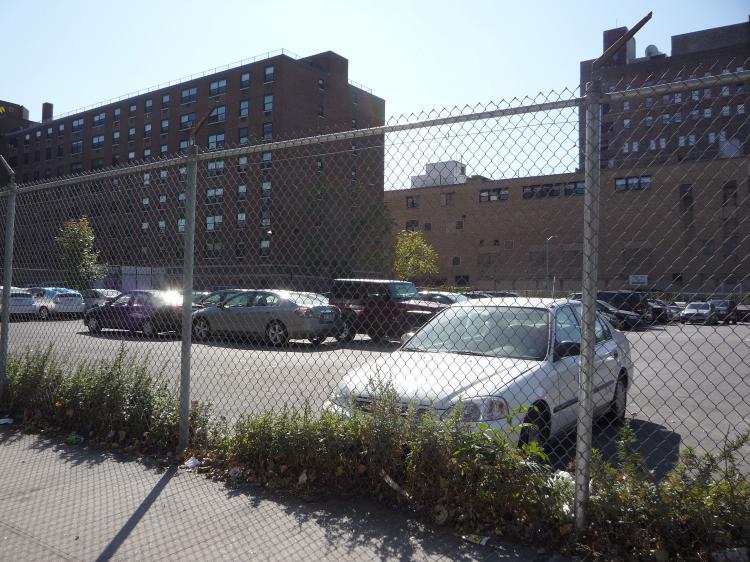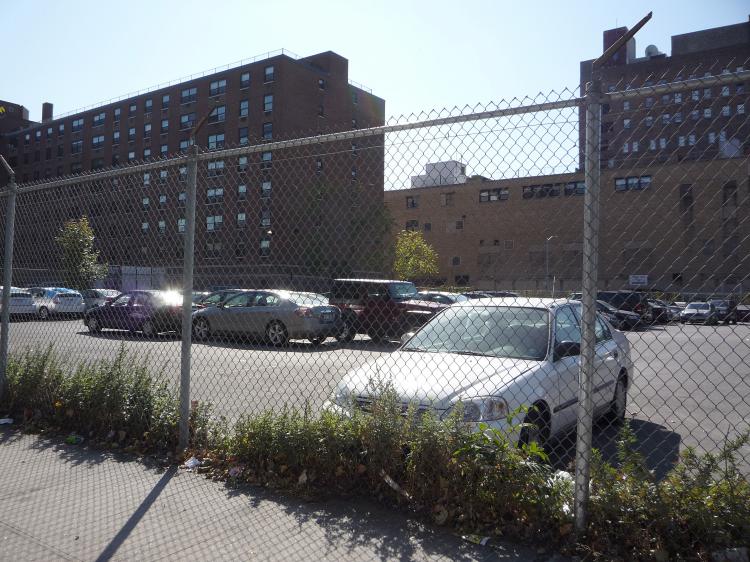Harlem Developer Eyes City Lot
Harlem residents protest the sale of an empty lot for the low price of $1 to what locals call a “slumlord”—Tahl-Propp Equities.

The Gov: Governor David Paterson stops to address the crowd at the African American Day Parade in Harlem on Sunday. Tim McDevitt/ Epoch Times
|Updated:






